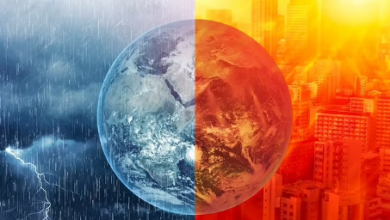Rising Temperatures Fuel a Silent Mental Health Crisis, Experts Warn

As the planet grapples with escalating wildfires, extreme heatwaves, and devastating floods, experts are increasingly highlighting a less visible but equally profound consequence of climate change: a silent mental health crisis.
Rising temperatures and extreme weather events are significantly contributing to a surge in psychological distress, including anxiety, depression, post-traumatic stress disorder (PTSD), and even increased suicide risks, according to recent studies and expert analyses as reported by Anadolu Agency.
Researchers like Dorina Cadar, a leading figure in neuroepidemiology, emphasize that direct exposure to climate disasters can trigger acute stress and trauma. Beyond immediate impacts, the insidious, long-term effects of environmental degradation, forced displacement, and compromised air quality also erode mental well-being. Historically, the mental health dimensions of climate change have received less attention compared to physical health impacts, but this is rapidly changing as evidence mounts.

Data indicates a concerning correlation: a 1°C increase in temperature can be associated with an approximate 1% rise in suicide risk. Heatwaves, often underestimated, are linked to mood changes, aggression, disrupted sleep, and a notable increase in hospital admissions for individuals with pre-existing mental health conditions. For instance, a study of mental health-related emergency department visits in the U.S. found an 8% increase on the hottest days compared to the coolest. Overall, mental health problems are projected to increase with further global warming across all regions.
Vulnerable populations, including the elderly, those with existing mental illnesses, low-income communities, children, and adolescents, are disproportionately affected. Climate anxiety, or “eco-anxiety,” is also a growing concern, particularly among younger generations who express significant worry and dread about the planet’s future. The crisis is compounded by the fact that climate change exacerbates existing socioeconomic inequalities, disrupting livelihoods and social structures, leading to a deeper and more widespread mental health burden.






